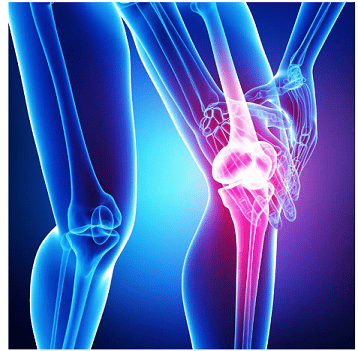Maintaining strong bones is an essential component of holistic health and longevity, as bones provide the foundation for our entire body. As part of life, when we age our bones begin to lose minerals and become thinner, which can lead to an increased risk of fractures and even the development of osteoporosis. This is where a bone mineral density (BMD) test, also known as a DEXA scan, can be incredibly helpful in assessing and improving bone health. Here’s what you need to know about this tool and how Living Well Dallas can help you stay stronger for longer.
Why You Should Get A DEXA Scan
A DEXA scan measures the density of calcium and other minerals in specific areas of the bone to evaluate an individual’s bone strength. It is a quick, painless, and non-invasive procedure that uses low-dose X-rays to scan the lower spine and hip, which are frequent sites of fractures due to osteoporosis. The results of a bone density scan consist of two scores:
- One that compares the patient’s bone density to that of healthy young women,
- And the other that compares it to individuals of the same age, race, and gender as the patient.
Who Is At Risk
- While postmenopausal women are considered at greatest risk for osteoporosis, men aged 50 to 70 are also at risk, as well as anyone with certain risk factors. These risk factors include family and medical history of fracture, disease conditions, hormone irregularities, and lifestyle habits. Many of the same factors that we see and work with in our office everyday.
- For those with a family history of osteoporosis or a medical history of previous fractures, a BMD test is particularly important.
- Women who have experienced early menopause or who have had hormone treatment for breast or prostate cancer may also be more vulnerable to osteoporosis.
- Additionally, individuals with diseases such as rheumatoid arthritis, Type 1 diabetes, liver or kidney disease, thyroid or parathyroid abnormalities, and eating disorders should undergo regular bone density tests as directed by their physicians.
- Lifestyle habits can also play a significant role in bone health. Individuals who have a low body weight, particularly postmenopausal women, should be checked regularly for osteoporosis.
- Smoking and excessive alcohol consumption can also increase the risk of bone weakness, as can being confined to bed for extended periods.
What The Results Say
If your DEXA scan reveals that your bones are losing mass or have already become weak and porous, there are steps we can recommend to improve your bone health. These may include medications, dietary changes, and exercise. Engaging in weight-bearing exercises, such as walking or dancing, can help to maintain or increase bone density. A healthy diet rich in calcium and vitamin D can also help. Your provider will come up with a plan that will help improve your bone health based on what the DEXA results show.
In Conclusion
A DEXA scan is an important tool for assessing and maintaining bone health. By addressing potential risk factors and taking steps to improve bone health, we can support our overall well-being and remain active and independent as we age. Remember, strong bones are the foundation for a strong body, so take care of them today to ensure a healthy future.
Ask your provider today if a DEXA scan is right for you and schedule your DEXA scan appointment at Living Well Dallas here!


